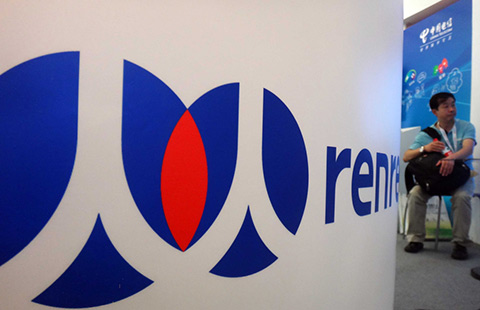Golden Week leads to buying frenzy
By China Daily (China Daily) Updated: 2012-10-22 09:14Massive spending spree sees sales up by billions of yuan over holiday
A spending spree during the eight-day Super Golden Week posed a sharp contrast to the gloomy state of the country's macro-economy, with the benchmark Shanghai composite index sinking to a 44-month low of 1999.48 points just three days before the holiday started on Sept 30.
|
 |
|
The 77.8-meter-high and 101-meter-wide Huangguoshu Waterfall in Southwest China's Guizhou province was a popular scenic attraction during the recent eight-day Golden Week holiday that started on Sept 30. The holiday provided a variety of purse- and wallet-emptying opportunities for people, including shopping, traveling, visiting family, eating out and entertainment. [Photo/China Daily] |
For Chinese people, the Mid-Autumn Festival is second only to the Spring Festival for family reunions. Starting on Sept 30, the Super Golden Week combined the Mid-Autumn Festival and the National Day holidays. Such a long national holiday set the stage for a buying frenzy.
The Golden Week provided a variety of purse- and wallet-emptying opportunities including shopping, traveling, visiting family, eating out and entertainment.
According to the Ministry of Commerce, from Sept 30 to Oct 7, the sales of key retail and catering enterprises under the State's monitoring totaled about 800 billion yuan ($127.2 billion), an increase of about 15 percent compared with last year's Golden Week.
"The formation of the 'holiday economy' has a positive effect on promoting consumption and accelerating economic growth. It starts cultural and spiritual consumption and finds a new consumption growth point for overcapacity in production," said Liang Da, an economist at the National Bureau of Statistics.
Golden Week refers to two holiday periods in the Chinese calendar: Spring Festival and the National Day period. It has always been a glittering time for retailers. With favorable discount policies and massive promotions, many potential customers are lured to retail stores.
Chen Jun, a new graduate in Anhui province, bought a smartphone for his father and a new suit for himself during the holiday. "I'd planned to buy a suit for a long time. Now that I had the spare time and there was the special offer, I just went to the store and got it," he said.
Statistics from Suning Corp, one of China's largest home appliance retailers, showed that its sales revenue in Beijing during this month's Golden Week tripled revenues from the same period last year.
Company insiders said the shopping spree resulted from the interaction of several factors, including strong demand from weddings and home decorations, subsidy policies established by the government and the company's own big promotion.
"The explosion of spending during the Golden Week reflects the great potential for domestic demand. People's purchasing power has risen for many years and needs to be released. And the process of urbanization also stimulates buying," said Liang.
In 2011, China's gross domestic product per capita reached $5,432. In some big cities such as Shenzhen, Shanghai and Guangzhou, the GDP per capita exceeded $10,000. This provides a solid foundation for expanding domestic demand.
China's rural areas are expecting more market development. The ownership of durable consumer goods in rural areas is relatively lower than that in urban areas but the speed of income growth and the change in purchasing styles is faster.
The prosperous domestic market during Golden Week sent a signal. If guided properly by subsidy programs and other stimulus options, China's domestic consumption may enter a new stage, despite the slowdown in global economic growth.
The government provided one particular incentive this past Golden Week: the toll-free policy on the country's expressways.
- Baidu Map seeks 50% of its users from overseas by 2020
- Chinese companies' overseas M&A growing at normal speed
- Chinese private company purchases US industrial robot manufacturer
- Chinese-invested giant sugar mill starts operations in Cambodia
- China's FDI to maintain steady growth this year: Commerce Ministry
- Policymakers walk a fine line with property market
- Shanghai introduces yuan-denominated gold benchmark price
- Global sluggish demand, not China, causes steel glut: spokesman

















